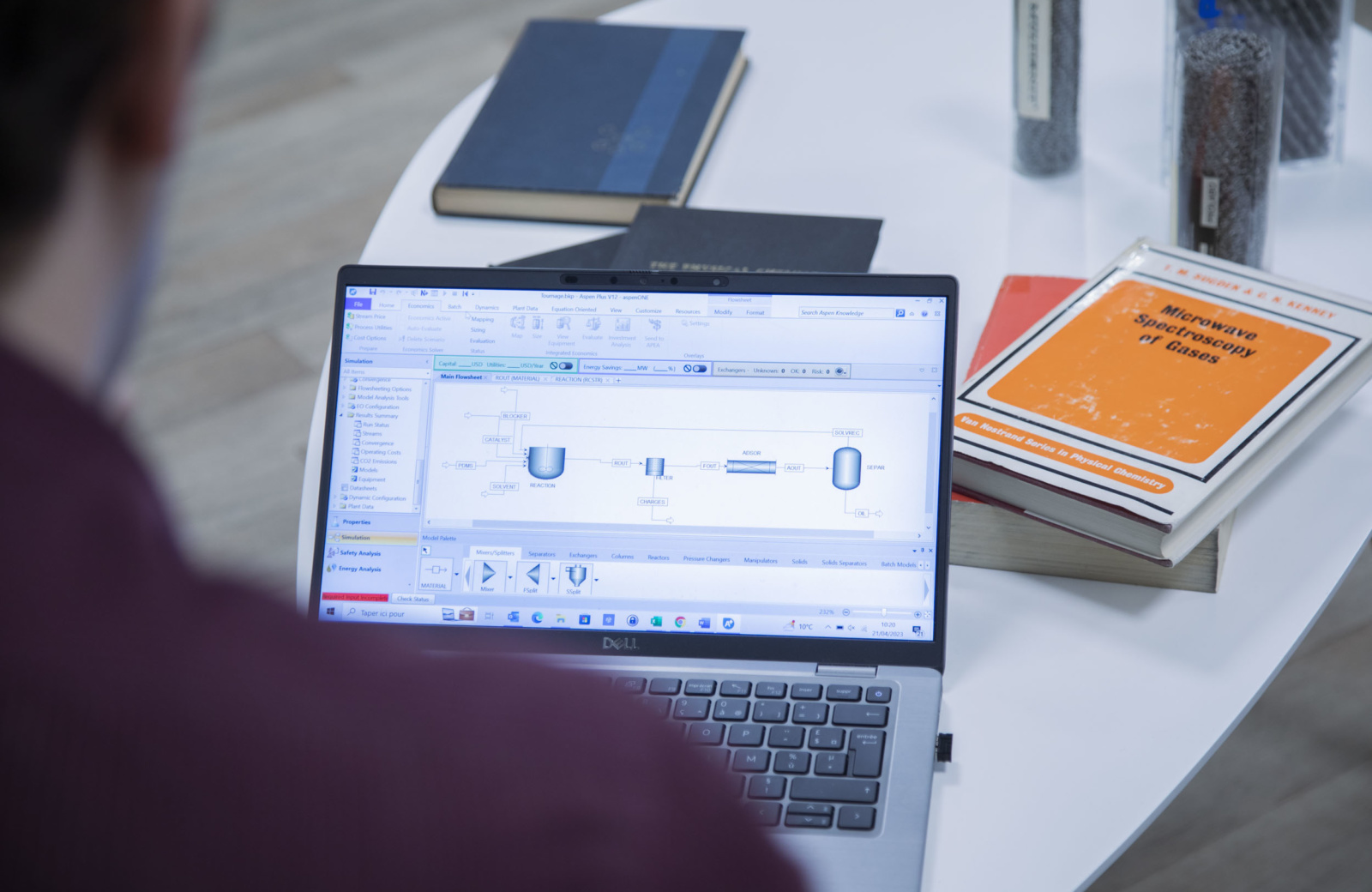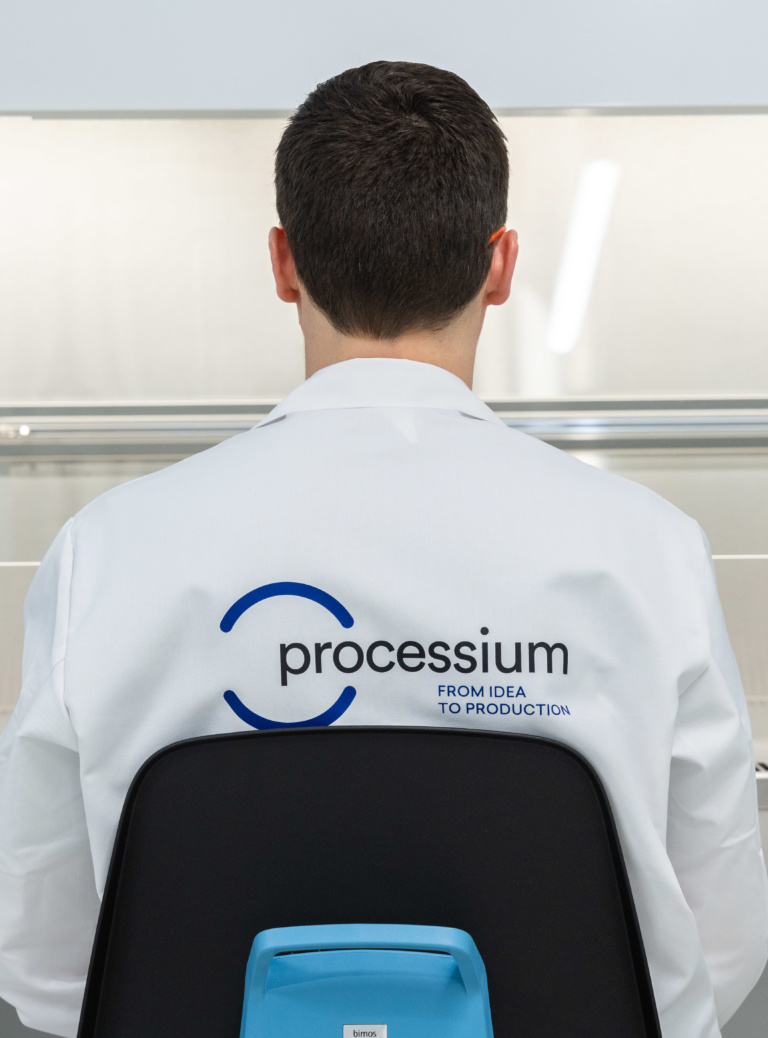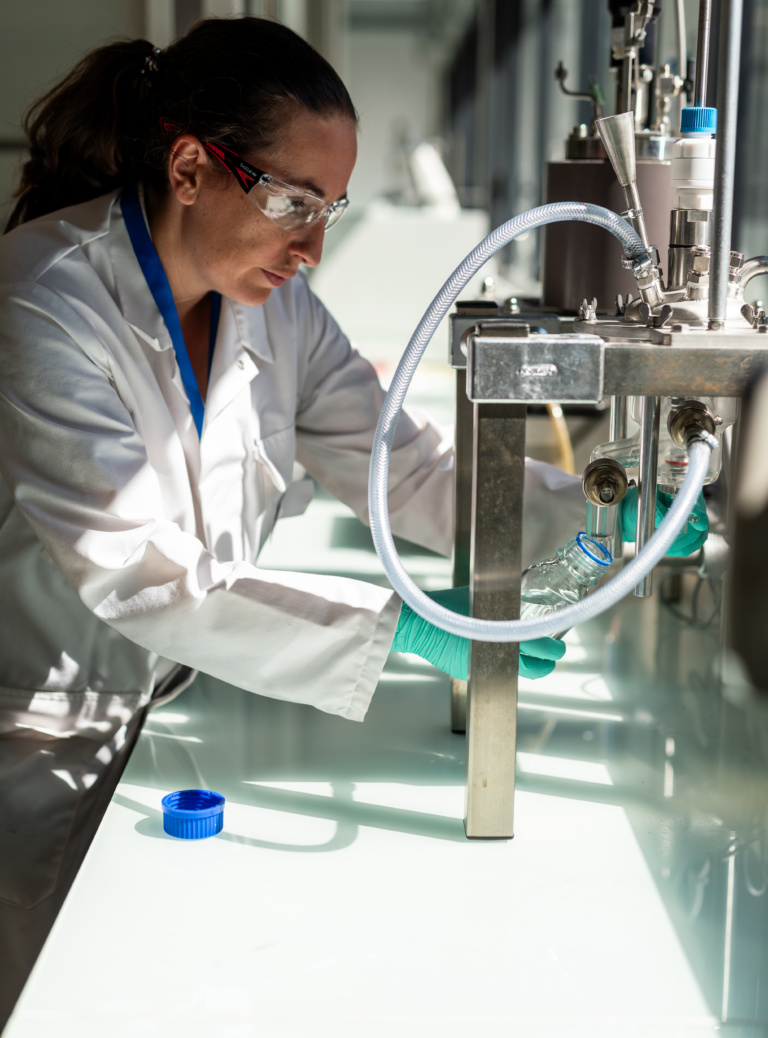
01. The project's general context
Published in the “Journal Officiel” in August 2015, the Law on Energy Transition for Green Growth (LTECV) aims to facilitate France’s energy transition. One of the objectives of this law is to reduce the waste landfill by 50% between 2010 and 2025 in order to encourage its reuse, leading to a reduction in the consumption of raw materials. In 2018, this still represented around 8 million tons of waste for which new recovery solutions need to be found. Regarding plastic sector, the European Commission’s European Strategy on Plastics in the Circular Economy (published in January 2018), encourages to:
- Incorporate ten million tons of recycled plastics into new products by 2025;
- Aim for 100% of plastic packaging to be reusable or recyclable by 2030;
- Aim for over 50% recycling of plastic waste by 2030.
REPOS (Ressourcement Polymères Silicones) project was launched in this context, in April 2020. Its main objective is to develop intensified processes for the chemical recycling of silicone materials and waste, in order to produce units (monomers or oligomers) that can be reused in an economically and industrially viable way. This collaborative project, initiated by Elkem Silicones, involves two laboratories (C2P2 and IMP) and two PMEs with complementary skills: Activation and Processium.
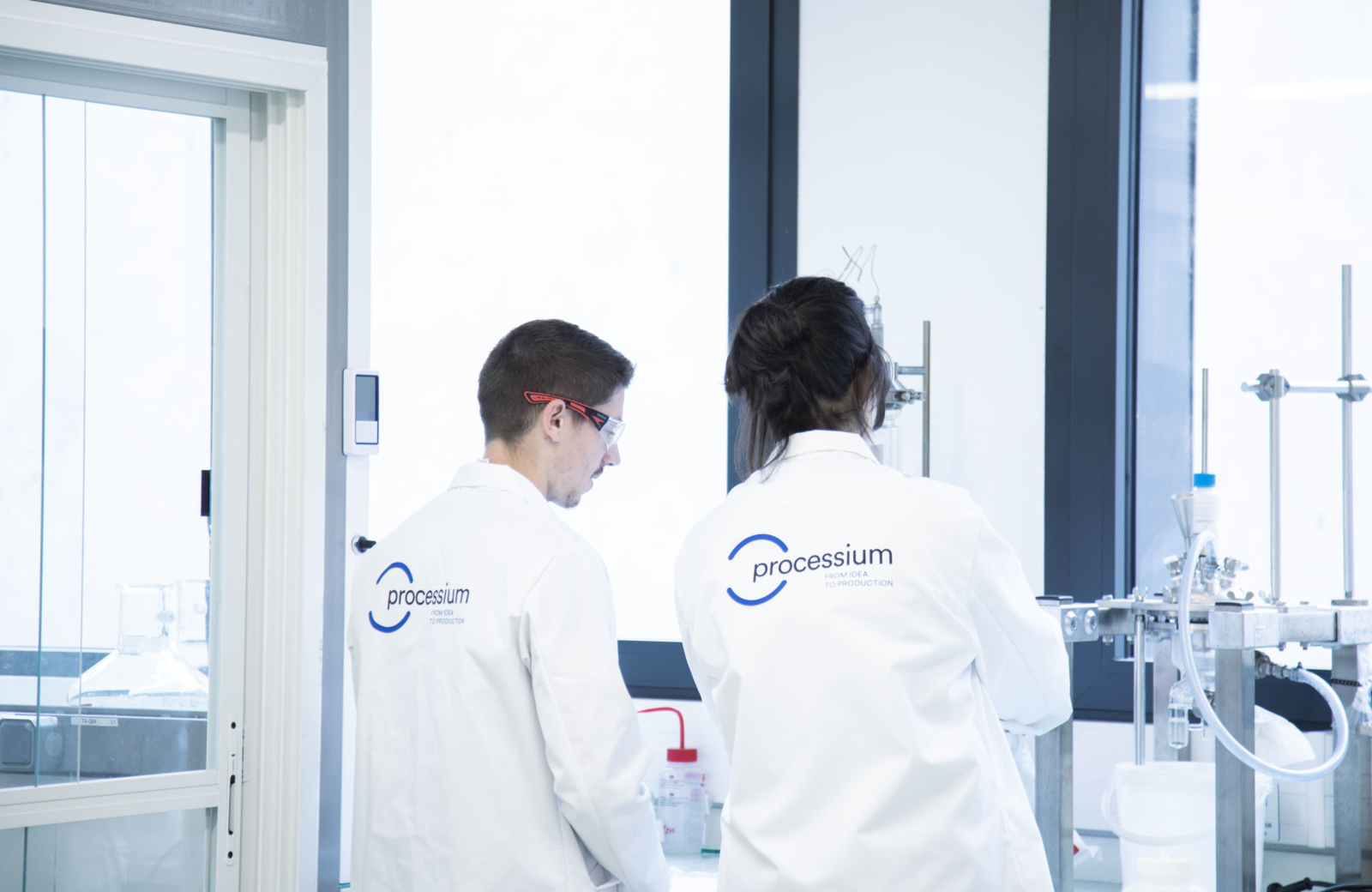
02. The role of Processium
Processium’s role in the REPOS project is divided into two parts. Firstly, the company is responsible for optimizing existing processes to improve their performance in terms of yield and reduce the proportion of recoverable products in effluents. Secondly, in order to make the waste depolymerization functional, Processium was given the task to design one or more recovery processes based on the chemistry identified by the C2P2 and IMP laboratories and optimized by Activation. Three processes for the chemical recycling of silicone polymer waste were developed. The first involves depolymerizing the waste to produce a functionalized oil that can be resold or reused in formulations. The second involves using the waste to extract monomers that can be re-injected into production and manufacturing processes. Finally, the last process allows us to go even further up the silicone chain by reconstituting chlorosilanes, chemical compounds at the basis of the entire plastic chemistry industries such as Elkem Silicones.
To reach its goal, Processium has deployed its recognized methodology for the design and development of industrial processes:
- An initial stage involving process flowsheet designs and choices of technologies
- Additional data acquisition and modelling in our laboratories, later be used as a basis for the thermodynamic models development
- Complete processes numerical simulation to estimate their technical and economic performance, in order to identify the best operating conditions
- A laboratory testing phase to validate and complete the theoretical results obtained
Finally, Processium also carries out a Life Cycle Assessment (LCA) to estimate the designed processes environmental impact. LCA is the most advanced tool for the global, multi-criteria assessment of environmental impacts. This method identifies and quantifies the physical flows of materials and energy associated with human activities throughout the life of a product. It assesses the potential impacts and then interprets the results obtained in line with its initial objectives. Thanks to this analysis tool, REPOS project will be able to determine the environmental impact of the polymer manufacturing process obtained from recycled materials and compare it with a manufacturing process using raw materials.
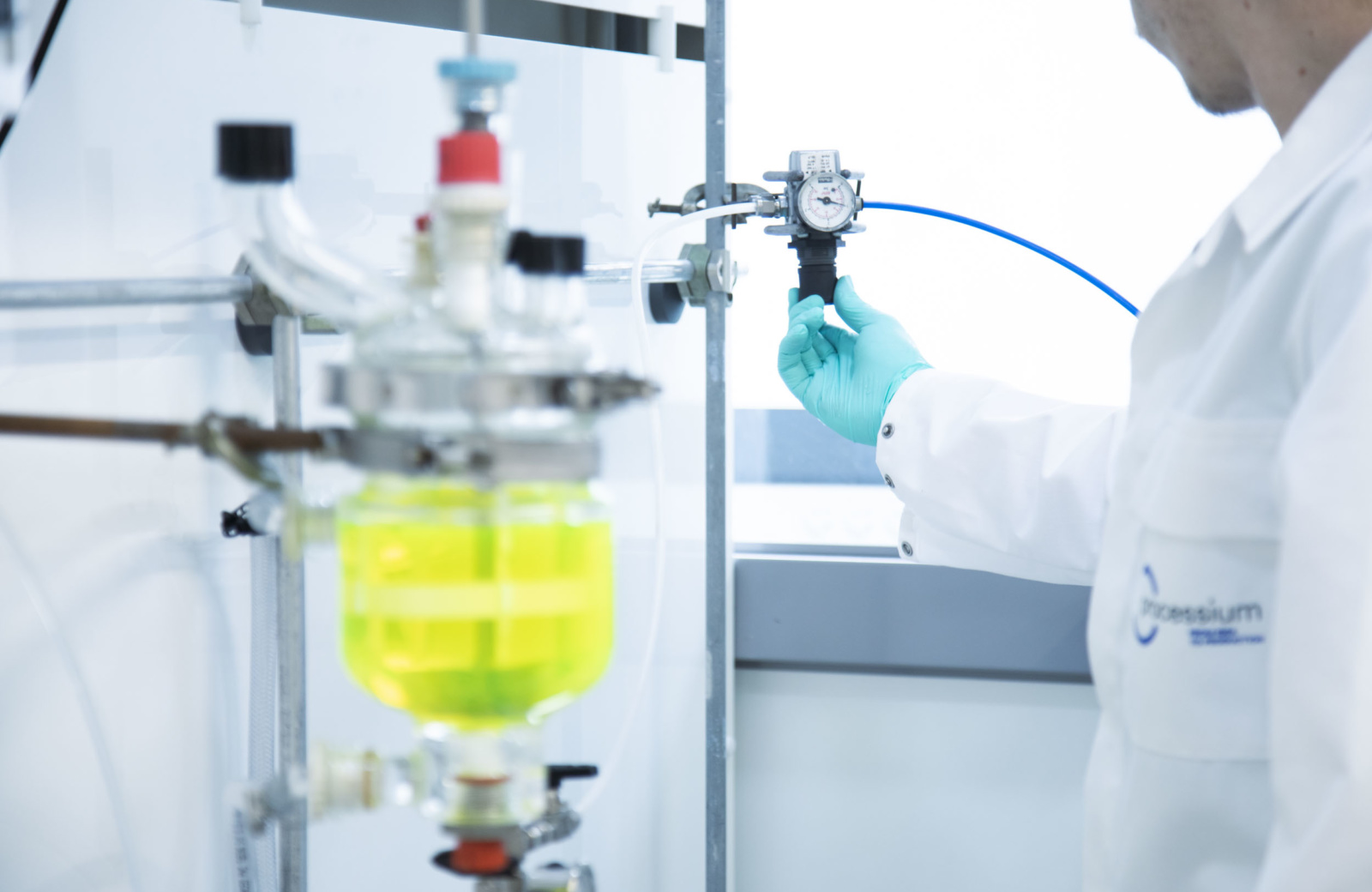
03. Outcomes of REPOS
Eight Processium engineers, process technicians and analysts have been working to make this collaborative project a success before the end of 2023. Several promising processes were put forward, enabling Elkem to achieve its objectives concerning the circular economy of its silicone materials and waste. However, Processium’s involvement will not stop there, as there are still development studies to be carried out before transfer to industrialization. This will, we hope, be the subject of a “REPOS 2” project in the coming years.
Driven by new legislations, initiatives in the field of silicone waste recovery are growing rapidly in France and in Europe. To bring all these large-scale projects to fruition, process design needs are now considerable. Thanks to its involvement in the REPOS project, Processium has become a significant partner for the successful completion of numerous projects. In order to put its expertise at the service of environmental protection, the company hopes that the implementation of a circular economy, in particular through polymer recycling, will be the focus of many more projects in the years to come.

